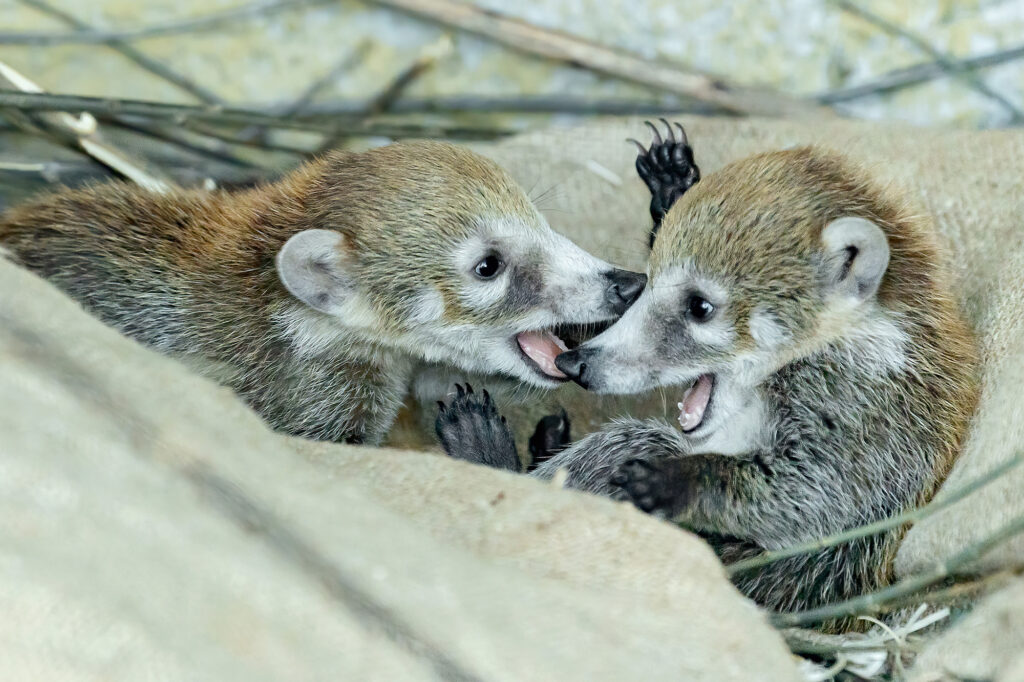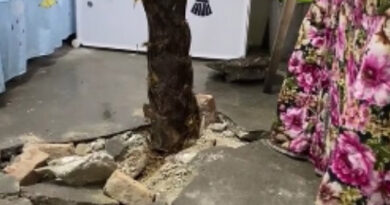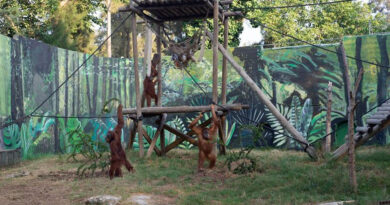Two Cute Coati Twins Finally See Light Of Day At Vienna Zoo
Two adorable white-nosed coati twins have finally seen the light of day when they ran through their enclosure at at Vienna Zoo for the first time ever.
The two female white-nosed coatis, named Bonita and Belize, were filmed frolicking at Tiergarten Schonbrunn Zoo in the Austrian capital Vienna for the first time after their birth on 22nd May.
Zoo director Stephan Hering-Hagenbeck explained that the two were initially born blind but slowly gained their sight, which is a general characteristic of coatis, and added: “You can now closely watch the lively young animals.”
The young ones were tailless and measured only 10 centimetres (3.9 in) in length at birth, and were looked after by their mother Doll and father Fernando in a specially made nest.
Enthusiastic about their progress and high-spirited nature, Hering-Hagenbeck said: “Above all, their father Fernando is a patient playmate of theirs. He has a lot of fun jumping around with them as well.”
When the little ones’ play time is over, the whole family snuggles up together to rest.
Additionally, while the two young ones feed from their mother, zookeepers provide fresh fruit, boiled eggs and meat for the omnivorous parents.
This is the second time Doll and Fernando have become parents, as they raised two other youngsters in 2020 that were given to Bellewaerde Zoo near the city of Ypres in Belgium.

Regarding the little ones’ names, Hering-Hagenbeck said: “Our zookeepers followed the same idea when they named the coatis as they did with dog breeding. The first offspring last year were the ‘A’ offspring, hence Alonso and Alessandro. The females are called Bonita and Belize, two South American names fitting the coati distribution area.”
The white-nosed coati (Nasua narica), also known as the coatimundi, is a species of coati and a member of the family Procyonidae and they inhabit wooded areas from sea level to 3,000 metre (9,800 ft) altitudes in North, Central and South America.
Despite the IUCN listing the white-nosed coati and the South American coati as “least critical”, the two mountain species became ‘near threatened’ and ‘endangered’ when they were officially separated into western and eastern species in 2009.



